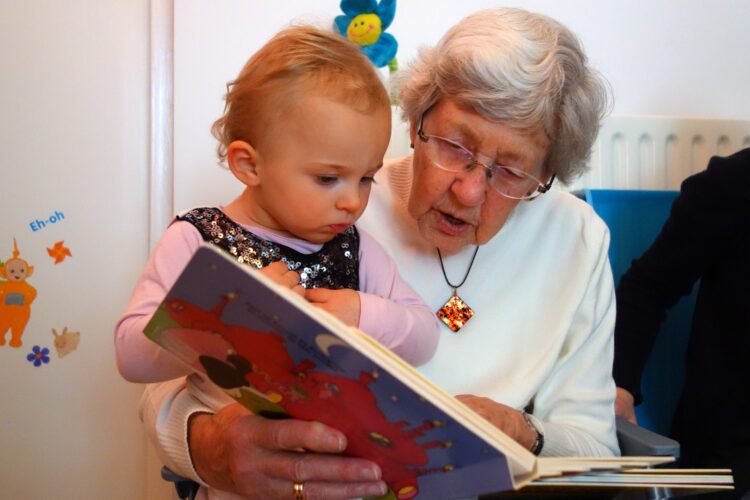Many older adults prefer to receive the care they need in the familiarity and comfort of their own homes. How can an older adult obtain that care? If you are helping an elder family member or friend obtain care, how can you increase the likelihood of a good at-home care experience?
Solid information and planning ahead improve the results we all can obtain. So we’ve done a fair amount of digging, and come up with the following information to help you arrange home care. As always, feel free to share this information with others.
Two Levels of Home Care
Home Health Care: This refers to a skilled professional (Registered Nurse/Licensed Vocational Nurse), who provides medical care at home. A physician often prescribes the type of skilled care needed and the costs can be covered by Medicare or Medi-Cal, if the elder qualifies.
Home Care: This involves a caregiver, who provides assistance in the home and attends to the elders personal needs (bathing, dressing, eating, house cleaning, etc.). Since many elders require this type of care rather than home health care, home care services are the focus of the rest of this article.
Finding a Caregiver
There are three principal ways to find a home caregiver:
- Relative as Caregiver: The elder may prefer care from a relative (child, grandchild, sibling) rather than that of a stranger. A relative might care for an elder without receiving any compensation or in exchange for living in the residence rent free. Often this type of arrangement is understood by the parties, but is not in writing. At times, a written agreement may be preferable.
- Private Agencies: There are many agencies that provide paid caregivers. It is important to know whether the caregiver provided by the agency is an employee of the agency, an independent contractor, or will become your employee. Caution: Avoid financial arrangements that may lock you into doing business with an agency (for example, an up-front deposit).
- Other Sources: You can hire a caregiver through a referral by a friend, professional (Geriatric Care Manager, Conservator), or service organization (senior center, church, etc.). A caregiver can also be hired through a registry, which operates like a referral agency by maintaining a list of potential caregivers.
Other Important Things to Know
As they say, the devil is in the details. Some of the details:
Caregiver as Employee/Independent Contractor: Is the caregiver the agency’s employee, your employee or an independent contractor? Caregivers are not considered independent contractors under government interpretation. If you hire the caregiver directly, the caregiver is your employee and you are responsible to withhold and pay various payroll taxes (including unemployment compensation and social security) on behalf of the caregiver. If an agency provides one of its employees, the agency bears the employer responsibilities.
Personalities: Work to match the personality of the caregiver with that of the person receiving care. Can they get along? Have mutual respect? Work together? It may take several attempts before a good match is made.
Screening/References: Has the caregiver been properly screened (personally interviewed, criminal background checked, drug screened, credit checked, references contacted)? That a caregiver is provided by an agency or registry is not a guarantee that screening has occurred. Be sure to obtain and check references of the proposed caregiver.
Training: Has the caregiver had any specialized training (familiarity with equipment/supplies, received training in a specific illness, etc.)?
Caregivers Duties: From the very start, a clear understanding on duties of the caregiver is an important part of the working relationship. Write down the duties the caregiver is to perform (and not perform). And monitor performance as time goes by.
Plan for Care: There should be a plan for care that considers and responds to the elders specific needs (prepare special menus, provide needed transportation, etc.). How will the plan be developed, and by whom? How will the plan be reviewed and revised from time to time?
Reliability: Does the caregiver have reliable transportation? Is there a backup plan in the event that the caregiver doesn’t show up?
Supervision/Isolation: Who will independently supervise the caregiver to ensure the quality of care? Who will make sure that the elder does not become isolated from others? Warning: isolation can increase the likelihood of physical and/or financial abuse.
What About Insurance?
Be sure to speak with your insurance professional. Include the following in your discussion:
Injury Insurance: Is the caregiver covered by Workers Compensation Insurance? If not, then the elder or family member may be liable for the caregivers job-related injuries. The elder or family member should not rely on Homeowners Insurance coverage, unless the insurance carrier has confirmed coverage for this risk. Many insurance companies have specific riders that can be added, to cover in-home caregivers.
Liability Insurance: Does the caregiver have adequate insurance coverage? If not, and the caregiver gets in a car accident in the course of running errands for the elder, then the elder may be held liable for the damages caused by the caregiver.
Liability\Theft Insurance: Is there adequate theft and or personal injury insurance (bond, professional or general liability)? If not, then the elder or family member should consider obtaining such coverage. In the unfortunate case of theft by a caregiver or non work related injury to a caregiver, adequate insurance coverage can help the elder recover financially.





